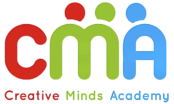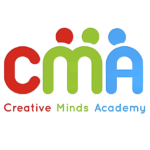How should I plan crash course for Jolly Phonics?
Planning a 15-day summer camp for 4-year-old children to teach them the basic 42 sounds of Jolly Phonics sounds like a wonderful idea! Here’s a sample planner to help you organize activities for each day of the camp:
Day 1: Theme: Introduction to Phonics
Morning:
- Icebreaker activities and introduction to camp rules
- Introduction to the alphabet and the concept of sounds
- Singing the alphabet song
Afternoon:
- Introduction to the first set of Jolly Phonics sounds (s, a, t, i, p, n)
- Sensory play with objects beginning with these sounds
- Craft activity: Making letter ‘s’ snakes
Day 2: Theme: Exploring Sounds
Morning:
- Recap of previous day’s sounds
- Introduction to the next set of Jolly Phonics sounds (c, k, e, h, r, m, d)
- Sound hunt game: Identifying objects with the sounds learned
Afternoon:
- Craft activity: Creating a collage using pictures of objects with the new sounds
- Interactive storytime with emphasis on the sounds learned
Day 3: Theme: Sound Actions
Morning:
- Recap of previous day’s sounds
- Introduction to the next set of Jolly Phonics sounds (g, o, u, l, f, b)
- Sound action game: Assigning actions to sounds and practicing them
Afternoon:
- Sensory play: Digging for objects with the new sounds in a sand table
- Craft activity: Making letter ‘o’ octopuses
Day 4: Theme: Sound Blending
Morning:
- Recap of previous day’s sounds
- Introduction to the next set of Jolly Phonics sounds (ai, j, oa, ie, ee, or)
- Blending sounds together to form simple words
Afternoon:
- Interactive reading session: Using flashcards with words containing the new sounds
- Craft activity: Creating a phonics flipbook with the new sounds
Day 5: Theme: Word Families
Morning:
- Recap of previous day’s sounds
- Introduction to the next set of Jolly Phonics sounds (z, w, ng, v, oo, oo)
Afternoon:
- Word family activity: Identifying and sorting words with similar endings
- Sensory play: Building words with letter magnets
Morning:
- Recap of previous day’s sounds
- Introduction to the next set of Jolly Phonics sounds (y, x, ch, sh, th, th)
Afternoon:
- Rhyming word activity: Matching words that rhyme
- Craft activity: Creating a rhyming word flip chart
Day 7: Theme: Digraphs and Blends
Morning:
- Recap of previous day’s sounds
- Introduction to the next set of Jolly Phonics sounds (qu, ou, oi, ue, er, ar)
Afternoon:
- Digraph and blend activity: Identifying and practicing sounds in words
- Sensory play: Creating sand art with words containing digraphs and blends
Day 8: Theme: Sight Words
Morning:
- Recap of previous day’s sounds
- Introduction to common sight words (e.g., the, and, is, it)
- Sight word recognition and spelling games
Afternoon:
- Sight word scavenger hunt: Finding sight words around the camp area
- Interactive storytime with a focus on sight words
Day 9: Theme: Sentence Building
Morning:
- Recap of previous day’s sounds and sight words
- Introduction to basic sentence structures
- Sentence building activity: Using phonics sounds and sight words to construct simple sentences
Afternoon:
- Craft activity: Creating mini books with sentences using Jolly Phonics sounds and sight words
- Group reading session with the constructed sentences
Day 10: Theme: Storytelling
Morning:
- Recap of previous day’s sounds and sight words
- Introduction to story elements (characters, setting, plot)
- Collaborative storytelling: Each child contributes a sentence using Jolly Phonics sounds and sight words
Afternoon:
- Puppet show: Children use puppets to act out their collaborative story
- Craft activity: Making stick puppets of the story characters
Day 11: Theme: Word Families
Morning:
Recap of previous day’s sounds and sight words Introduction to word families (e.g., -at, -en, -it, -ug) Word family sorting activity: Sorting words into their respective word families Afternoon:
Word family crafts: Creating word family houses or trees Word family reading race: Children read words from different word families and race to the finish line
Day 12: Theme: Vowel Sounds
Morning:
Recap of previous day’s sounds and word families Introduction to vowel sounds (a, e, i, o, u) Vowel sound identification activity: Listening to words and identifying the vowel sound Afternoon:
Vowel sound art: Creating collages using pictures of objects with different vowel sounds Vowel sound hopscotch: Children hop on letters representing different vowel sounds
Day 13: Theme: Sight Word Review
Morning:
Recap of previous day’s sounds and vowel sounds Review of previously introduced sight words Sight word games and activities Afternoon:
Sight word treasure hunt: Children search for sight words hidden around the camp area Sight word bingo: Playing bingo with sight words
Day 14: Theme: Reading Comprehension
Morning:
Recap of previous day’s sounds, vowel sounds, and sight words Introduction to basic reading comprehension skills (e.g., sequencing, identifying main characters) Reading comprehension activities: Answering questions about short stories or passages Afternoon:
Dramatic reading: Children act out short stories or passages using props and costumes Story discussion: Engaging in conversations about the stories and sharing thoughts and opinions
Day 15: Theme: Celebration and Review
Morning:
Recap of all previously taught sounds, sight words, and concepts Review games and activities Certificates and celebration of achievements Afternoon:
Camp showcase: Children perform songs, rhymes, and skits related to Phonics Parent visit: Parents join in the celebration and observe their child’s progress
That completes the 15-day summer camp planner for teaching Jolly Phonics to 4-year-old children. Please note that you can customize and adapt the activities based on the needs and interests of the children.

